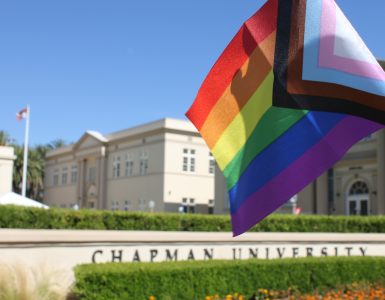I have come to believe that in the face of COVID-19, we are all experiencing grief. Almost every one of us is experiencing the stress of loss. But stress is not distributed equally in our society. My not being able to move about freely in my neighborhood or travel is not the same as another’s stress of losing their business or grieving the death of a loved one. It is not the same as the stress caused by the deaths of George Floyd, Breonna Taylor, Ahmaud Arbery and too many more, killed because they were not seen as human beings with the right to live. It is not the same as the stress of those who live every day with racism and collectively reacted this weekend in grief and anger.
In his challenging book on racialized trauma and healing, “My Grandmother’s Hands,” Resmaa Menaken reinforces that trauma is transferred from generation to generation. Traumatic experiences are inherited through memory and carried in our DNA. Past complicity with the violence of racism is shared in White communities and past experiences of violence is shared in Black communities.
The stress caused by news of the killing of George Floyd has raised the trauma of generations. Especially now, when we have so clearly seen enormous societal racial disparity displayed in the face of this virus. Statistics are unmistakable that Brown and Black members of our society are disproportionately dying of COVID-19. These deaths are associated with systematic injustices where many lack access to basic nutrition or healthcare or education, all the while continuing to perform essential work in unsafe conditions. As Menakem repeats, “There is a root to the trauma tree, and what we now see is the fruit.”
We are currently under tremendous stress. All of us. I am researching the mindfulness movement in this country, and see how mindfulness and similar techniques really work to deal with individual stress. I experience that on Zoom calls with many of you. We all need to cope, using presence and measured perspective, with the trauma caused by this historic global crisis that is affecting every home. And we learn from mindfulness that a first step toward healing is gaining awareness. But I also see how so many of our stress relief tactics target only individual stresses, as though just by changing our minds we can heal every ill. It’s just not true – some stress will not go away until we collectively dismantle the unjust structural causes of that stress.
It’s not easy to know how to really love our neighbors as ourselves, when the history of racialized injustice, and the grief it has caused, are so complex. But we have to try. Faculty, students and alumni of Chapman University are already engaged in this struggle, researching and practicing ways to begin to heal the societal trauma that has led to this historical moment. This is a moment for us to reflect upon whether we will do the hard work of healing from this virus of racism that has haunted us for generations. We have the power to do so. Will we no longer collectively avoid the reparation of years of injustice?
For now, our hearts ache for those whose grief is multiplied by the grief of their parents and grandparents and great-grandparents, for communities whose children have died at the hands of us, a not yet fully human society.
At Chapman University, we just celebrated amazing accomplishments on the part of our graduates. I end with the sentiment of President Jennifer K. Ward of Luther College, my alma mater, “As we end one academic year and look to the next, may we celebrate the things that have been done, but – after listening – not stay silent in the face of things that are left undone.” May we at Chapman University do the hard work of bringing about healing the stress of racism in our society.
Reach Out for Help
All faculty, staff and students with any concern are welcome to contact Chapman’s Fish Interfaith Center to receive support or set up a grief counseling session. Email interfaith@chapman.edu. Or join us on “Chat with a Chaplain,” on Zoom every weekday between 1 – 3 p.m.


